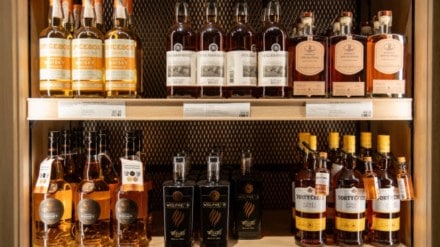– By Richa Singh
The Indian alcohol beverage (alco-bev) industry, known for its resilience and significant contribution to the exchequer, is expected to witness transformative trends in 2025. Building on reforms introduced in 2024, the industry is gaining momentum despite persistent challenges. Here’s a closer look at the financial trends shaping this vibrant sector in 2025:
Towards Simplified Taxation
The removal of GST from Extra Neutral Alcohol (ENA) in 2024 was a much-needed relief, reducing production costs for spirits and enabling greater competitiveness for local players. While the industry continues to face a labyrinthine tax regime, with each state imposing its own levies, cesses, and policies, there is hope that streamlining taxation at the state level could improve the ease of doing business.
In the absence of a unified tax framework, standardizing pricing and taxation, while allowing states to retain some level of fiscal autonomy through state-level cesses, offers a viable middle ground. Such measures would not only reduce compliance burdens for companies but also streamline revenue collection for governments, creating a win-win scenario. This approach could be a game-changer, attracting greater investments into the sector while ensuring fiscal stability.
Local Players and Craft Boom
India’s alcohol landscape is undergoing a dynamic shift with the rise of local players, microbreweries, and craft distilleries. From premium craft gins to artisanal whiskeys, entrepreneurs are capitalizing on the growing demand for unique, high-quality products. These ventures are not only catering to the discerning urban consumer but also boosting regional economies by sourcing local ingredients and employing local talent.
This surge in microbreweries and distilleries is creating a ripple effect across related industries, including packaging, logistics, and tourism. For instance, many regions are now offering immersive distillery experiences, attracting tourists eager to learn about the craft and heritage behind their favourite beverages. Supporting this trend through favourable policies and financial incentives could further bolster the sector.
FTA with the UK: A Long-Awaited Opportunity
India’s Free Trade Agreement (FTA) negotiations with the UK, one of the largest exporters of whisky, have been a focal point for the industry. A successful agreement could reduce customs duties, making high-quality imported spirits more accessible to Indian consumers. This, in turn, would spur healthy competition and push domestic players to innovate and elevate their offerings.
The potential benefits extend beyond imports. Indian Scotch, which has already begun making waves in international markets, stands to gain from streamlined export processes and favourable tariffs. Supporting this burgeoning segment could amplify India’s presence in the global spirits market, showcasing the country’s craftsmanship and heritage while generating substantial export revenues.
Cost Pressures and the Push for Efficiency
The alco-bev industry has been grappling with significant cost pressures, driven by rising raw material prices, energy costs, and compliance expenditures. These challenges have compelled companies to seek operational efficiencies and explore cost-effective production methods.
The government’s effort to streamline taxation and trade policies could offer some relief. Moreover, encouraging investments in sustainable production practices and technology adoption could mitigate cost pressures while aligning the sector with global environmental standards.
Make in India: Scaling New Heights
The “Make in India” initiative is fostering a robust domestic manufacturing ecosystem, with Indian spirits carving a niche for themselves in global markets. The emergence of Indian Scotch as a credible competitor to traditional Scotch whiskies is a testament to this progress. By incentivizing production and export, the government can create a virtuous cycle of growth, employment, and brand building for Indian spirits.
Additionally, the industry’s integration with tourism holds immense potential. Distilleries and breweries offering guided tours, tastings, and heritage experiences are gaining traction, drawing both domestic and international tourists. This convergence of tourism and beverage manufacturing not only enhances consumer engagement but also creates ancillary employment opportunities in hospitality and service sectors.
Shaping the Future: Collaboration and Growth Ahead
As the Indian alco-bev industry enters 2025, collaboration between stakeholders—government, businesses, and consumers—will be key to unlocking its full potential. Policies aimed at simplifying tax structures, promoting local production, and facilitating international trade could provide the much-needed boost to an already vibrant sector.
Moreover, fostering innovation, sustainability, and inclusivity within the industry will ensure its long-term growth and relevance. With the right support, the sector can continue to thrive, contributing to India’s economic growth, creating jobs, and delighting consumers with world-class products. Cheers to an exciting year ahead for the industry!
(Richa Singh, Chief Financial Officer, Pernod Ricard India.)
(Disclaimer: Views expressed are personal and do not reflect the official position or policy of Financial Express Online. Reproducing this content without permission is prohibited.)
